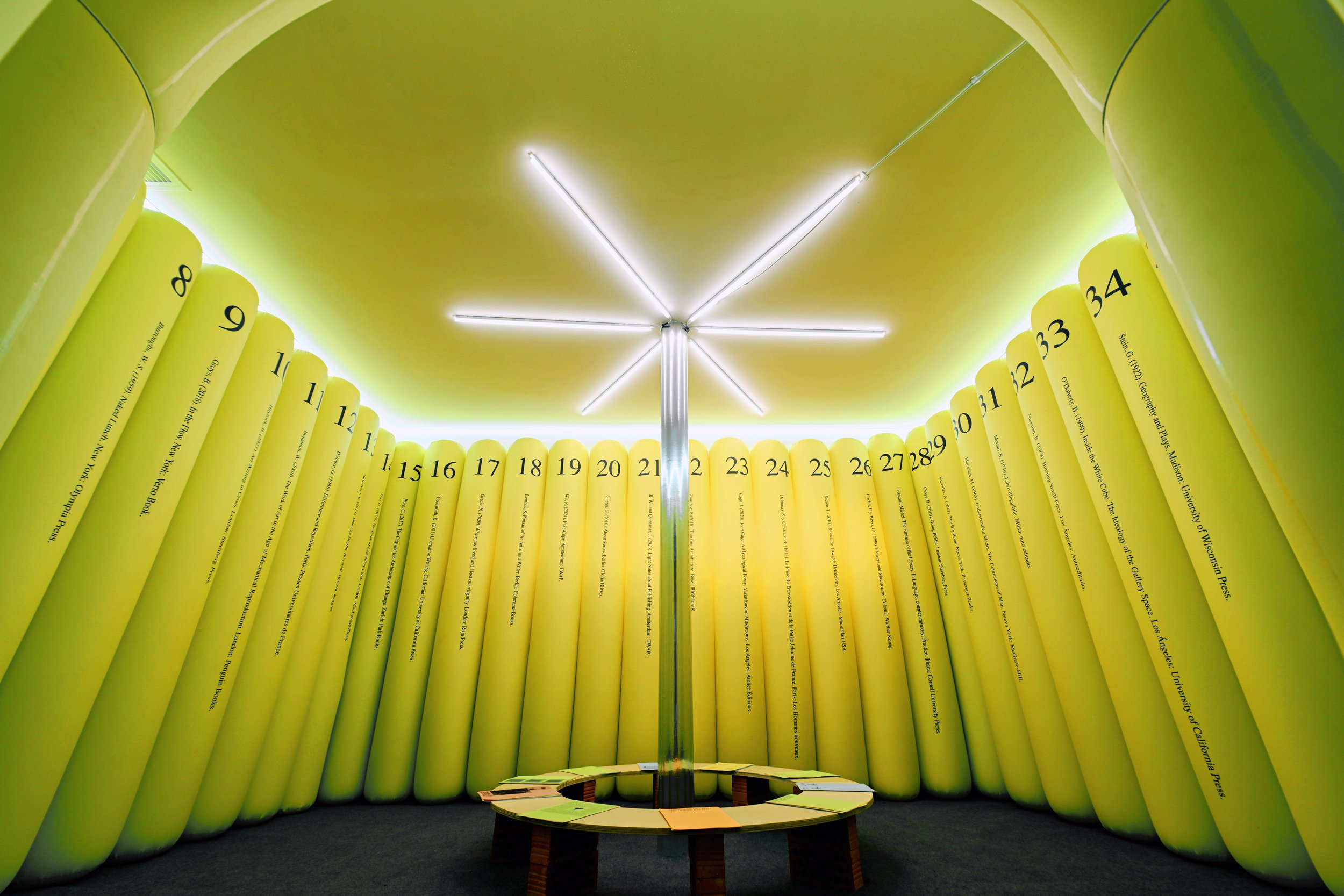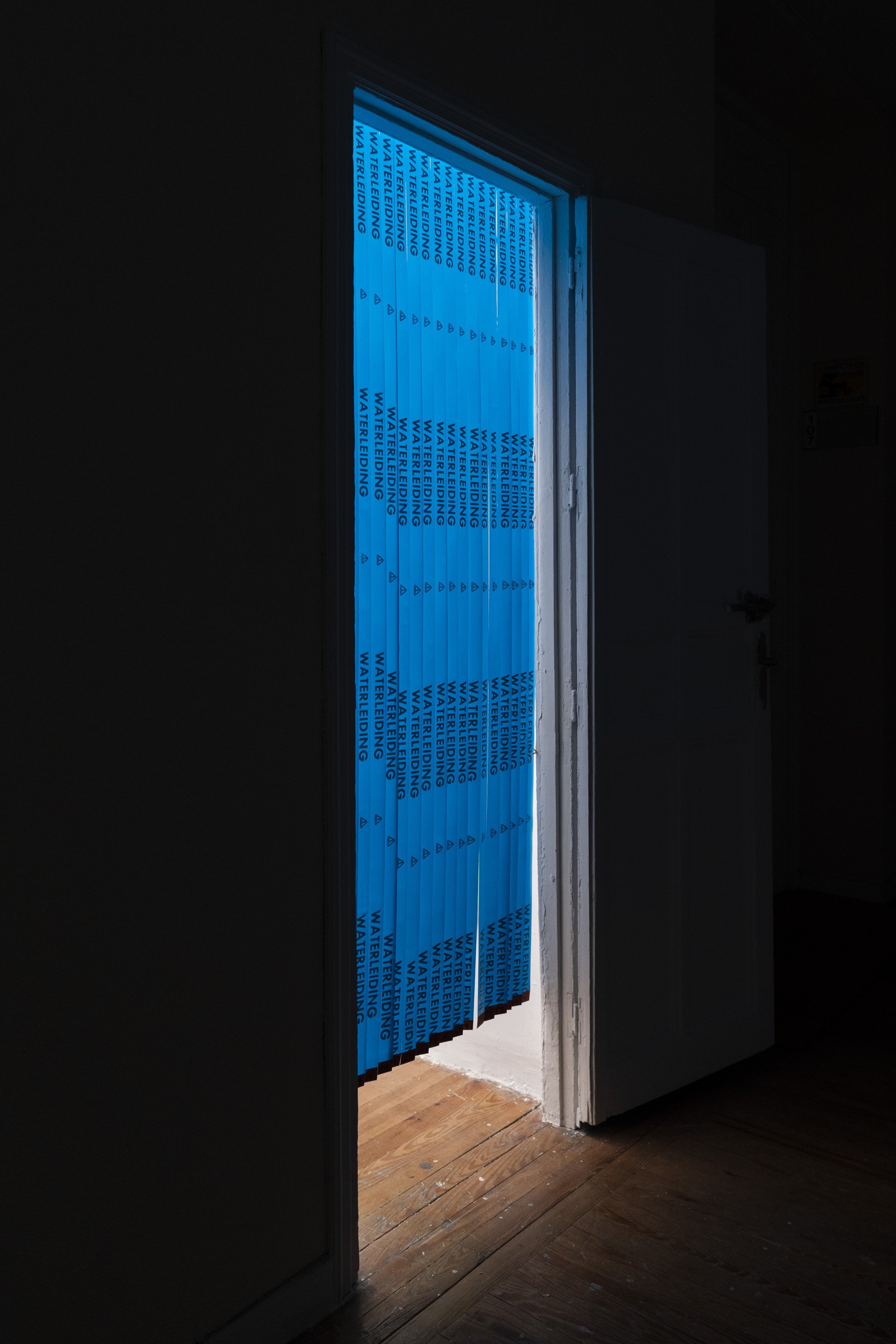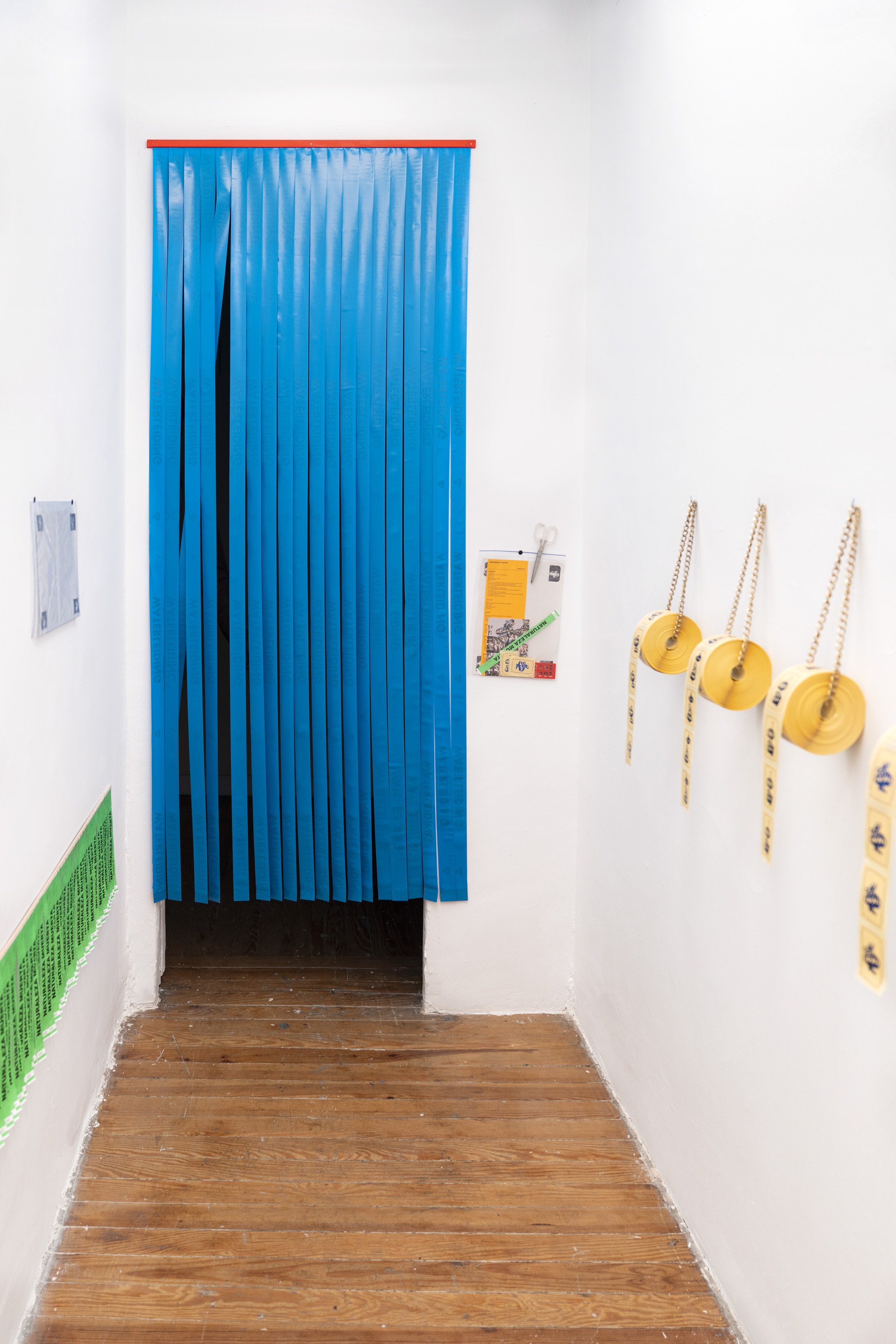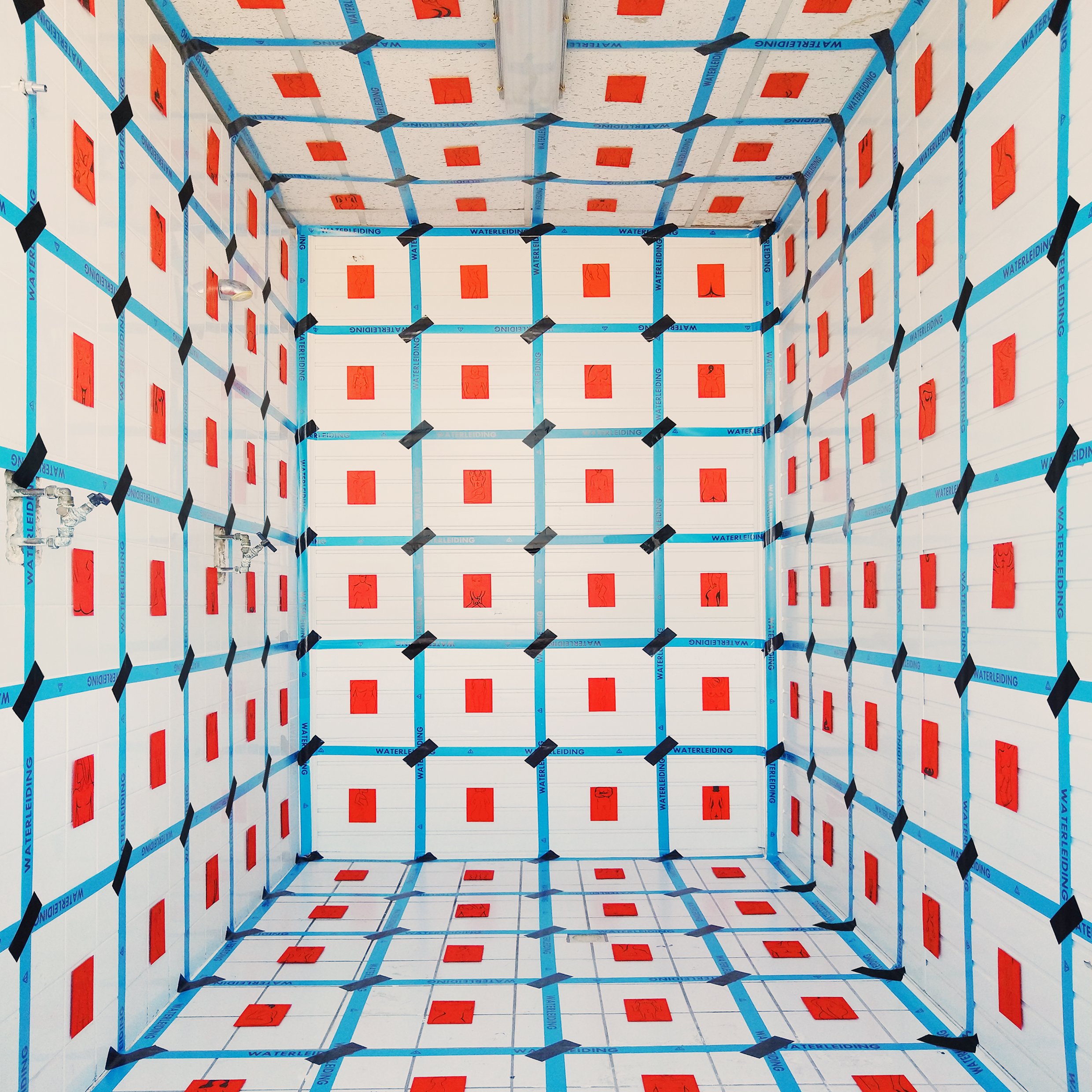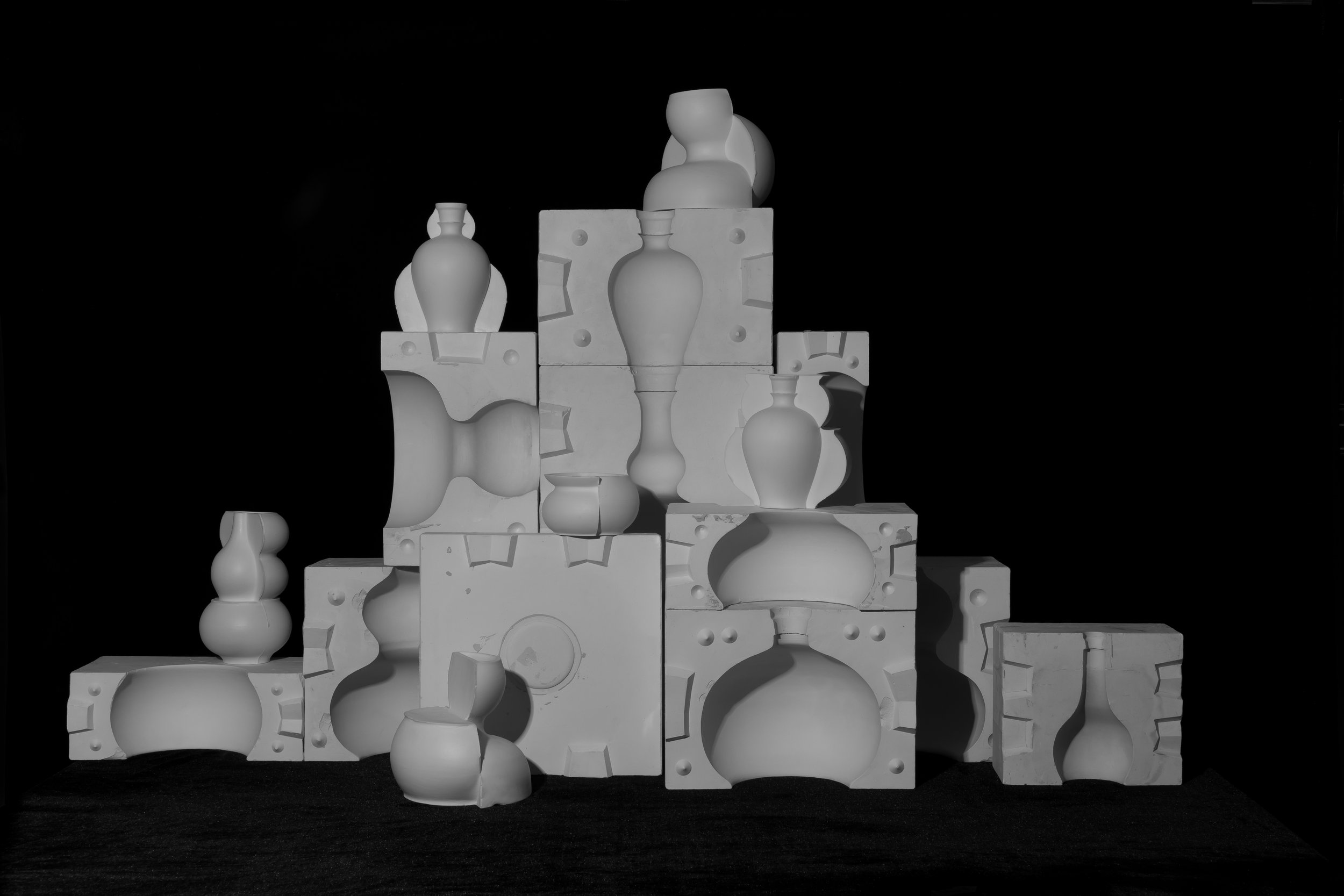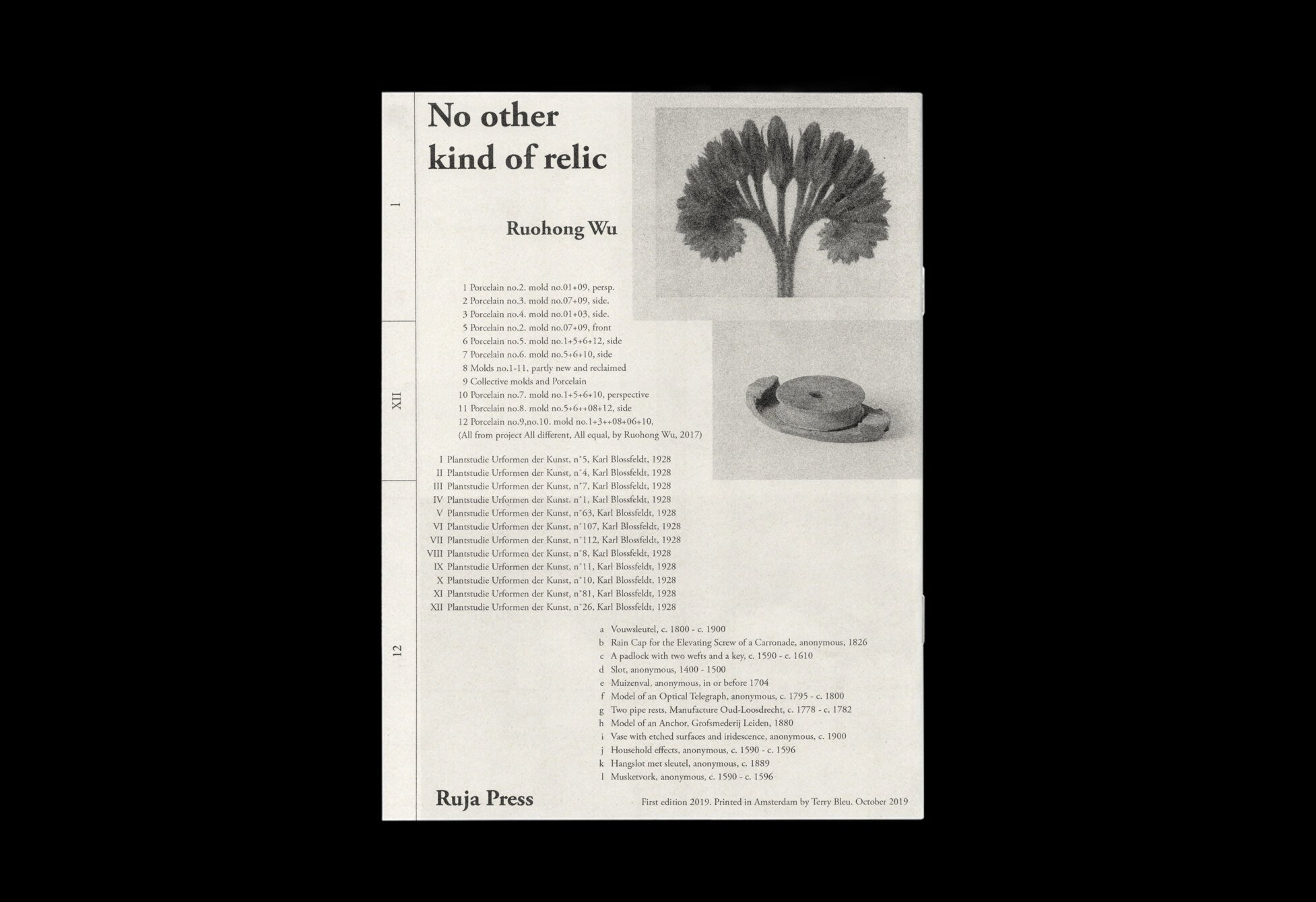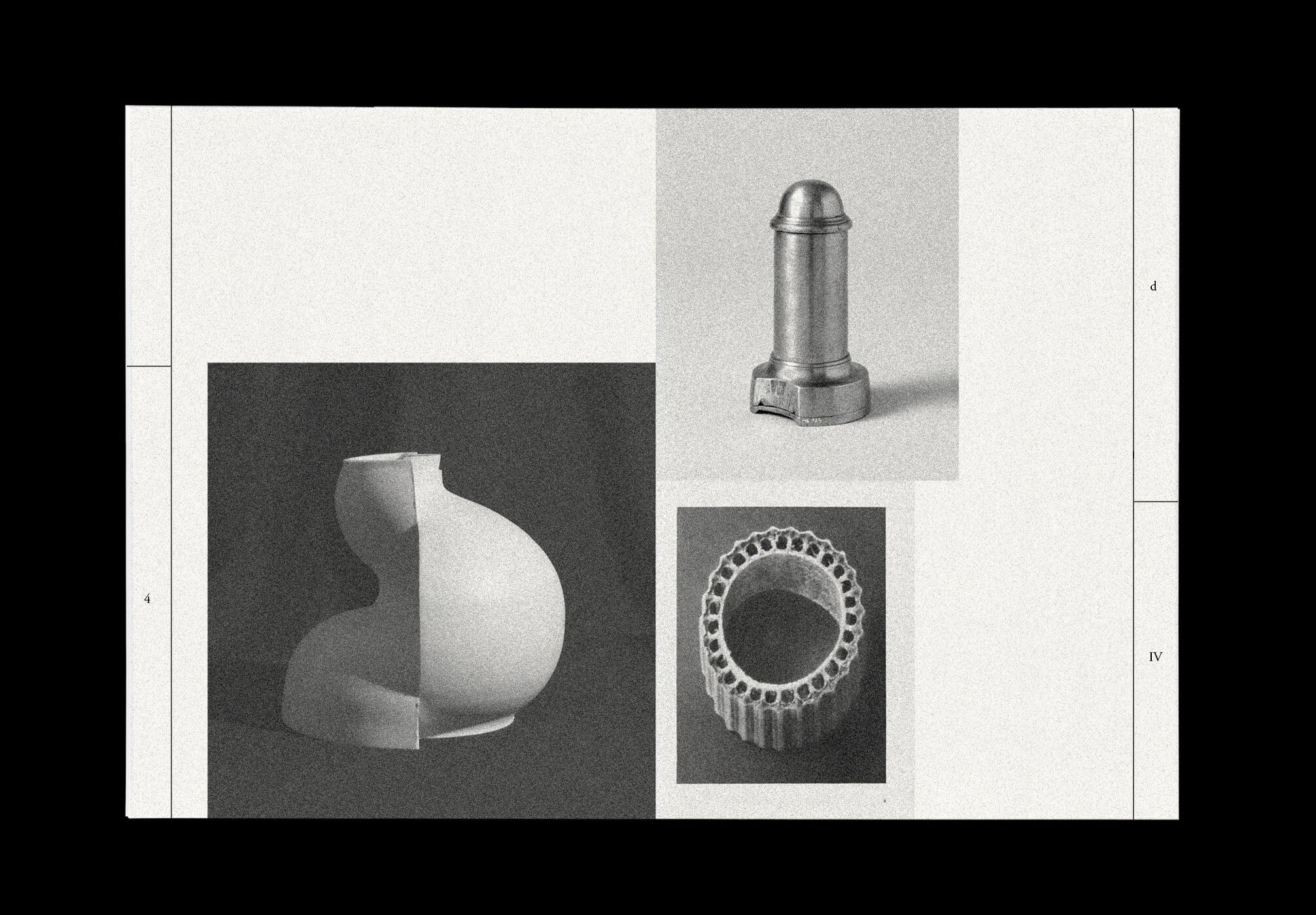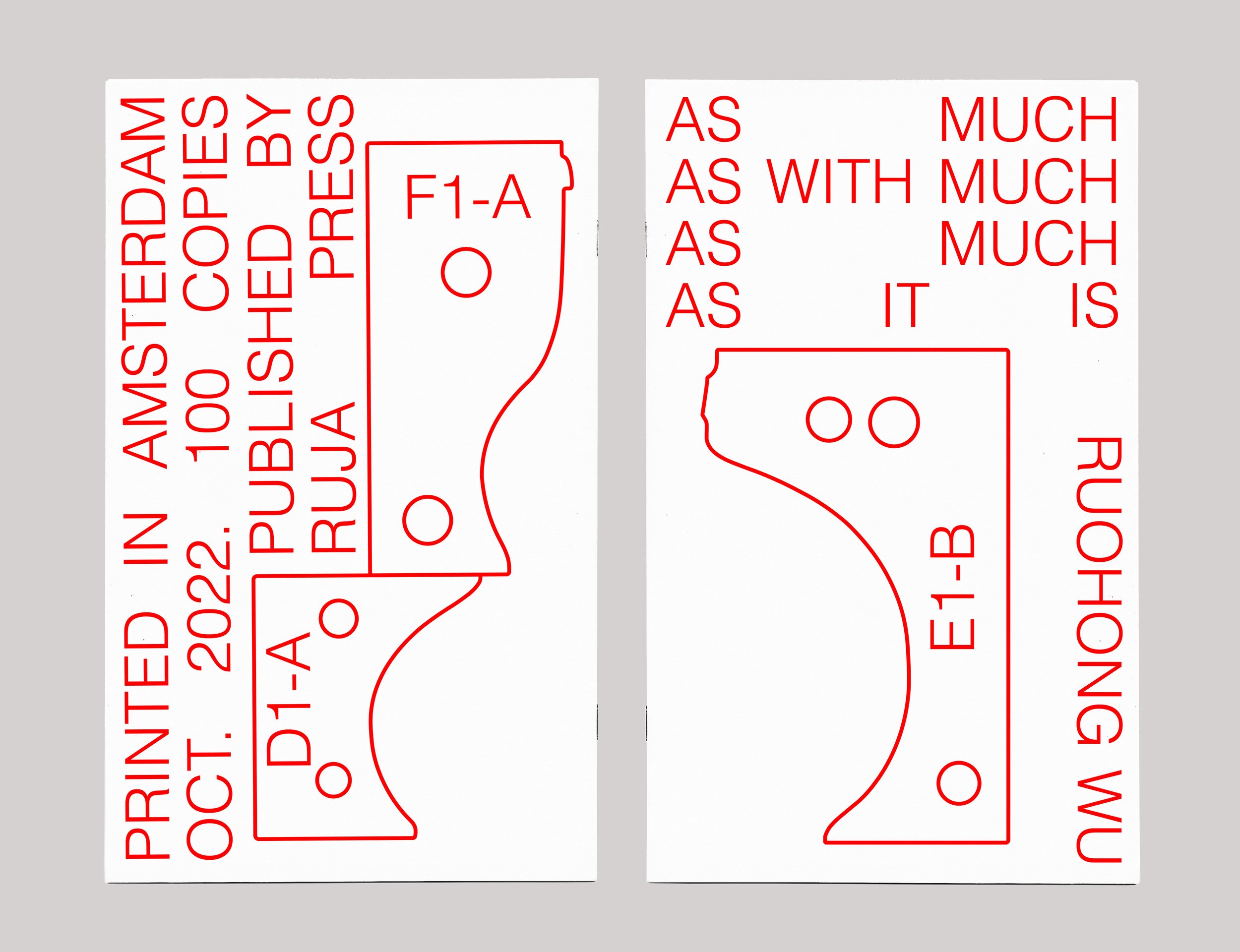The Dark Threat of Absence, as Sturtevant titled her video work in 2002.
I am offline to read, write in my atelier.
See you late, the image world.
/
/
/
/
/
/
/
/
/
a. [Space]
a.7 The City Of Good Neighbors, II
Space intervention. A space comprises 55 references from various times, subjects, and genres relevant to the research by publishing project This was a project, but we have forgotten what it was. since 2013.
a.6 Naturaleza Muerta_Arana
a.5 Shower Space
111, 1e Middellandstraat, Rotterdam. The shower room of the 1940s represented a transitional moment of identity shift, where (mostly female) employees showered, changed, and transformed from low-skilled laborers into mothers, daughters, sisters, or any passersby on the street. The COVID-19 situation connects the past and the present. Private balconies have transformed into temporary clubhouses where neighbors celebrate as a community. Bedrooms have evolved into extensions of the labor market, blurring the lines between work and leisure. Streets have become both isolation barriers and sources of embarrassment. The traditional paradigm of typology has been disrupted with temporality. The shower room is tailored into a 27185-cm2 portable costume exclusive to its temporary occupant.
a.4 La Pechanga
a.3 A Fine Line
exhibition. the 1st International Architecture Biennial of Euskadi Mugak, 2018. Scenarios by METALOCUS.
a.2 Bomba Gitana
Spatial intervention and event design for Matadero, Madrid.
a.1 Silent Manifest
Invited by the city council of Cuenca, Spain.
b. [Object]
b.3 Naturaleza Muerta
10 domestic objects, mass-produced industrially or commercially.
Naturaleza Muerta. object. laser cut on acrylic, opaque, gloss red, 3 mm (MS0539), 40x90 mm, 195 copies, Van Helmontstraat 23, Rotterdam.
Naturaleza Muerta-Trademark. metallic blue foil stamp, 40x60cm, 4 rolls of 1,000 copies, Holland Etiketten Service.
Naturaleza Muerta. object. digital print, 10,5x14,8cm, 200 copies | World Trade Center, Rotterdam.
Naturaleza Muerta. object. Luis Egidio Meléndez, Still Life with Watermelons and Apples in a Landscape, 1771. Room 088, Museo del Prado, Madrid
Naturaleza Muerta. object. Luis Egidio Meléndez, Still life with Grapes, Apples and Plums, 1762. Museo del Prado, Madrid (on loan to another institution)
Naturaleza Muerta. object. Luis Egidio Meléndez, Still Life with Pomegranates, Apples, Cherries and Grapes, 1771. Room 088, Museo del Prado, Madrid
Naturaleza Muerta. object. Luis Egidio Meléndez, Still Life with Breams, Oranges, Garlic, Seasoning and Kitchen Utensils, 1772. Room 088, Museo del Prado, Madrid
Naturaleza Muerta. tyvek band (TENSJRK-113-PDG-I), 1.9x25cm, 300 copies, PDC Healthcare EU
b.2 All Different, All Equal.
44 found slipcase molds and 44 re-casts. This work reflects the struggles faced by artisans due to the sharp shift from ancient monarchy to communist reformation in the 1940s and the subsequent integration into the world market economy in the 1990s. China, a country renowned for its quality and age-old crafts, then grapples with the cultural gap exacerbated by the abundance of mass-produced ‘Shanzhai’ objects. Jingdezhen, the capital of sophisticated porcelain for over 1,700 years, is now filled with abandoned factories and artisans struggling to redefine their practice.
b.1 Mass-Production
A series of hand-stitched tapestries composed of selvedges are byproducts of the textile weaving process sourced from local Dutch textile industries. The unpredictable pattern reveals the significance of every manufacturing process and element. Meanwhile, the other side manifests personal participation by colour-coding the hours and routines during the completion process.
160x160cm, 180x200cm.
c. [Publication]
c.8 Copy/Fake
1. Fake as More and the Return of Hank Herron / 2. Sturtevant and Hank Herron: the Double Trouble / 3. The “Look Back” Trouble.
c.7 27185
This was a project, but we have forgotten what it was. No.6
c.6 No Other Kind of Relic
Conversation of Three Storylines: Objects from the Collection of the Rijksmuseum of Amsterdam (c.1400-1900), Images of Plants by Karl Blossfeldt (the 1920s), and Porcelain Sculpture Combined with Abandoned Casting Moulds Found in Jingdezhen, China (2017).
c.5 As much, as with much, as much, as it is.
c.4 This Was A Project, But We Have Forgotten What It Was.
2012-2022, 10 Years, Ruja Press (Ruohong Wu and Jose Quintanar) Published by PrintRoom, Rotterdam
c.3 Summer Palace
A publication both inspired by a visit to the Summer Palace in Beijing and the game-like-plan of Dutch architect Aldo van Eyck. The symbolic meaning of ornamentation or the typology of space become pieces of montage on the digital screen. It is of different periods of time intersected between each other, erasing, copying from the different piece of the reality and inserting new elements. Of how geometrical objects can plan by themselves follow single rules to create infinite results.
Date: 2018
Size: 21.0 cm x 29.7 cm
Page: 20 pages
Binding: Paperback
Printing: inkjet
c.2 Bom Bom Bay
Diving into the imaginary landscapes both in micro and vast scale, a discovery of how to tell pieces of memories of a factional location with architectonic languages such as abstract maps, geographical contours, time-based plans and sections....
Date: June, 2017
Size: A4+A5 booklet
Page: 20 pages
Binding: Paperback
Printing: inkjet
c.1 Chinese Games
Chinese Games This set of drawings interprets three traditional Chinese games -Ping Pong, Tai-Chi and I-Ching through a series of different lenses with alternative aspects of what it means to participate and play under a specific cultural context. It introduces the Chinese way of enjoying life through traditional and modern mathematical principles with simple visual elements and establishes obvious or hidden logic between them. These drawings are not intended to provide one primary interpretation of a given name, instead, they articulate a particular way of visualising an activity, and by doing so they encourage viewers to speculate about other possible modes of analysis.
Date: June, 2018
Size: A4
Page: 20 pages
Binding: Paperback
Printing: inkjet
d. [Research/Meetups]
d.10 The House of Horrors.
Current writing on Hollywood, Disneyland, horror films, and ghost houses.
d.9 Xerox or Book. John Habraken, 1981. {Ongoing}
d.8 The Work, On The Work, On The Work Of The Others: Sturtevant on Sturtevant on Sturtevants. {Ph.D, Ongoing}
d.7 Amsterdam Kraakt!{Ongoing}
Image: Fernando Pereira / Anefo, 10th, September, 1980. Nationaal Archief, NL.
d.6 The Smoke Signal Library.
The smoke signal is a form of visual communication used over a long distance, to transmit news, signal danger, the selection of a new Pope, to mark positions during the war, or gather people to a common area. A primitive way of making something public.
It’s a collection of second-hand books arranged and mixed to construct cross stories by Ruohong Wu and José Quintanar. A board game where we experiment and research about new possibilities to construct knowledge.
d.5 Today is a very very very very gummy place.
d.4 The City Of The Good Neighbor.
It is not a city with common standards. It is built with knowledge. It’s buildings, and public spaces are books constructed from other books. The city's construction resembles that of an extensive library. Unlike a conventional city, everything is constantly in motion here, changing alongside ideas and concepts.
d.3 Sampling Ideas Around Books As Public Space.
d.2 Place & Displacement
The investigations focus on a fictional migrant settlement to be located on the British island of Jersey, near the north-west coast of France. Drawing inspiration from current affairs, fake news and “real” sites – such as the former “Calais Jungle”, a refugee and migrant encampment in the French coastal city of Calais that was dismantled in 2016, and which drew global media attention during the immigrant migrant crisis in 2015.
d.1 Square City

